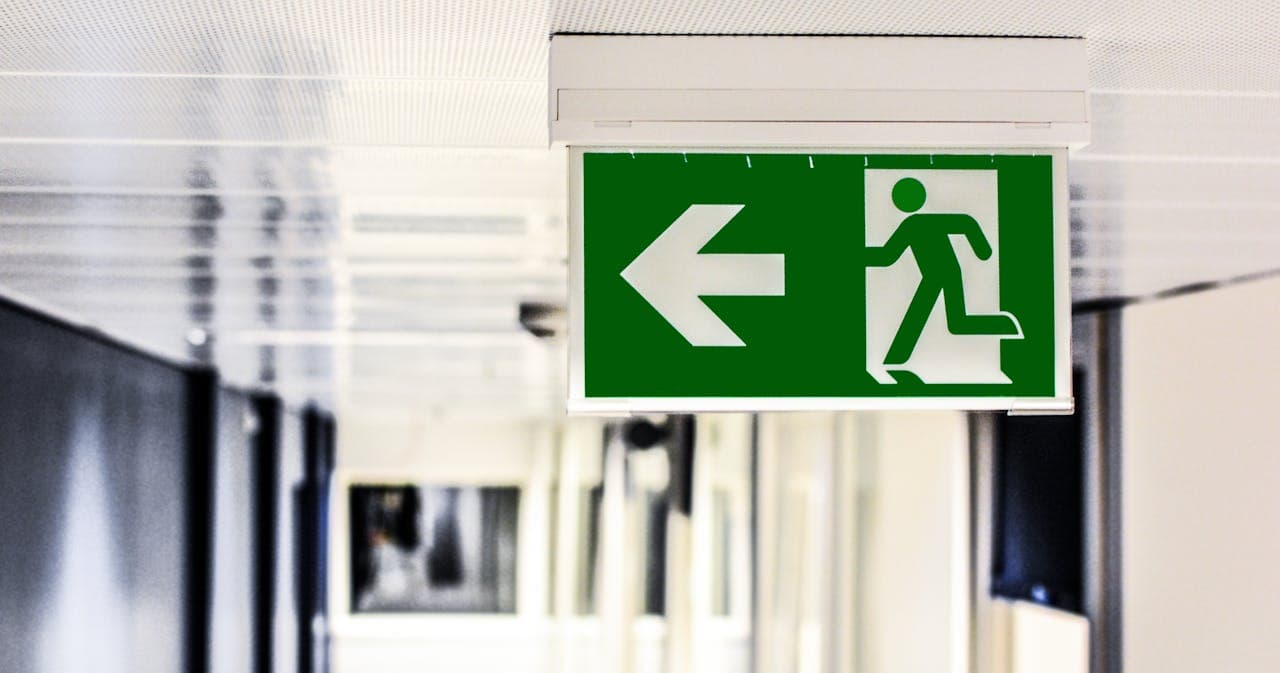You just brought life into the world. Yet instead of joy, you feel crushing darkness. This isn't ordinary exhaustion. It could be a crisis.
Many new moms brush off severe symptoms as "normal stress." Waiting can be dangerous.
You deserve support now.
This guide shows you true emergency warning signs. You'll learn exactly when to act fast. Your safety matters most.
If you have thoughts of harming yourself or your baby, call 911 or the National Suicide Prevention Lifeline (988) immediately.
For non-urgent support, schedule an appointment at our clinic.
Let’s get started.
Why You Can’t Ignore These Symptoms
Bringing home a newborn should feel hopeful. But for some new mothers, it becomes a battle with postpartum depression (PPD).
This isn’t "baby blues." Baby blues pass quickly. PPD is a medical emergency that demands attention.
Baby Blues vs. Postpartum Depression: The Critical Difference
Baby blues feel like light rain. They fade in days. You might cry easily, but still bond with your baby.
Postpartum depression is a relentless storm. It drains joy for weeks or months. Simple tasks like feeding your baby feel impossible.
How Common Is Severe PPD?
Postpartum Support International has stated that 1 in 7 new mothers develops PPD.
Risks increase with:
- A history of depression
- Traumatic birth
- Lack of support
Why Waiting Is Dangerous
If PPD is left untreated, it can escalate to:
- Self-harm or suicidal thoughts
- Psychosis (losing touch with reality)
Need clarity on PPD basics? Read our guide on What is Postpartum Depression? Symptoms, Causes & Treatment Options.
EMERGENCY Signs: When to Seek Help IMMEDIATELY
Postpartum depression becomes urgent when safety is at risk. These five signs mean you need help now. Do not wait.
Thoughts of Harming Yourself or Your Baby
If you imagine suicide or hurting your infant, this is critical. Call 911 or 988 immediately.
Extreme Paranoia or Hallucinations (Postpartum Psychosis)
This rare emergency makes you:
- Hear voices
- Believe delusions ("My baby is possessed")
- Suspect conspiracies
Expert Tip: Postpartum psychosis escalates fast. Get medical help within hours.
Total Withdrawal: Can’t Eat, Sleep, or Care for Your Baby
When basic survival feels impossible:
- Ignoring hunger for days
- Letting the baby cry for hours
- Staying frozen in bed
Severe Panic Attacks or Catastrophic Thinking
Physical danger signs include:
- Rapid heartbeat: Feels like your heart is racing or pounding.
- Shortness of breath: A sensation of not getting enough air or feeling like you can’t breathe.
- Dizziness: Feeling like you might faint.
- Shaking or trembling: Uncontrollable physical shaking, even if you’re not cold.
- Sweating: Excessive sweating, even when it’s not hot.
- Nausea or stomach upset: Feeling like you might vomit.
- Hot flashes or chills: Sudden waves of heat or cold.
- Feeling detached or unreal: Often described as feeling outside your body.
Why It’s Important for New Moms
In new mothers with postpartum depression, panic attacks can feel especially frightening:
- They may fear that something is wrong with their body.
- They may worry they’re “not okay” for their baby.
- These symptoms can create a cycle of fear and avoidance, worsening emotional distress.
Reckless Behavior or Urges to Flee
- Driving dangerously fast
- Abandoning your baby at home
- Impulsive drug use
What to Do in a Crisis: Your Step-by-Step Plan
When an emergency strikes, every second counts. Follow these steps exactly:
Step 1: Secure Immediate Safety
- If you’re alone, call someone now. Say: "I’m not safe. Come get the baby."
- Place your infant in a crib. Move away from stairs or sharp objects.
Step 2: Contact Professionals
- Dial 911 or 988 (Suicide & Crisis Lifeline).
- Call your OB-GYN or therapist. Demand: "This is urgent. I need help today."
Step 3: Prepare for Treatment
Pack these in 5 minutes:
- ID and insurance card
- Current medications
- A comfort object (photo, blanket)
Treatment Options That Save Lives
Postpartum depression is treatable. With the right care, you will feel like yourself again. Here’s what works:
Therapy That Works
- CBT (Cognitive Behavioral Therapy): Identifies harmful thought patterns.
- IPT (Interpersonal Therapy): Fixes relationship stress, causing isolation.
Safe Medications While Breastfeeding
SSRIs are well-studied and low-risk.
Your doctor may prescribe the lowest effective dose.
Intensive Care Programs
For severe cases, patients are offered:
- Intensive Outpatient Programs: 4-6 hours of outpatient therapy.
- Inpatient Care: 24/7 medical support during crises.
Just finished treatment? Learn how to prevent relapse here.
Preventing Emergencies: Early Red Flags & Self-Care
Spotting early warnings stops crises before they escalate. Watch for these signs:
"Yellow Light" Symptoms
- Intense rage at small noises (e.g., baby crying)
- Insomnia even when exhausted
- Obsessive guilt ("Everything is my fault")
Remember: These require professional help within 48 hours.
Daily Self-Care Tactics
- Sleep Hack: Feed the baby, then immediately sleep. Let your partner handle the next wake-up.
- 5-Minute Mindfulness: Breathe while counting baby’s eyelashes.
- Eat First: Prioritize your meals over household chores.
Build Your Safety Net
Daily Partner Check-In: "Rate my mental state 1-10 today."
Support Groups: Join a Postpartum Support Group online.
Note: Preventing emergencies starts with honoring small struggles.
Conclusion
Recognizing these five emergencies saves lives: thoughts of self-harm or harming your baby, psychosis, total withdrawal, severe panic, or reckless urges.
Trust your instincts; if something feels wrong, it is.
Postpartum depression is treatable. You will feel joy again. You will bond with your baby.
This darkness is not your forever.
Take action today:
- Schedule an Appointment: Talk to a specialist now.
- Track Your Health: Spot changes early.
- Immediate Help: Call 911 or the NSPL 988 (National Suicide Prevention Lifeline) immediately.
You deserve support. You are not alone.




